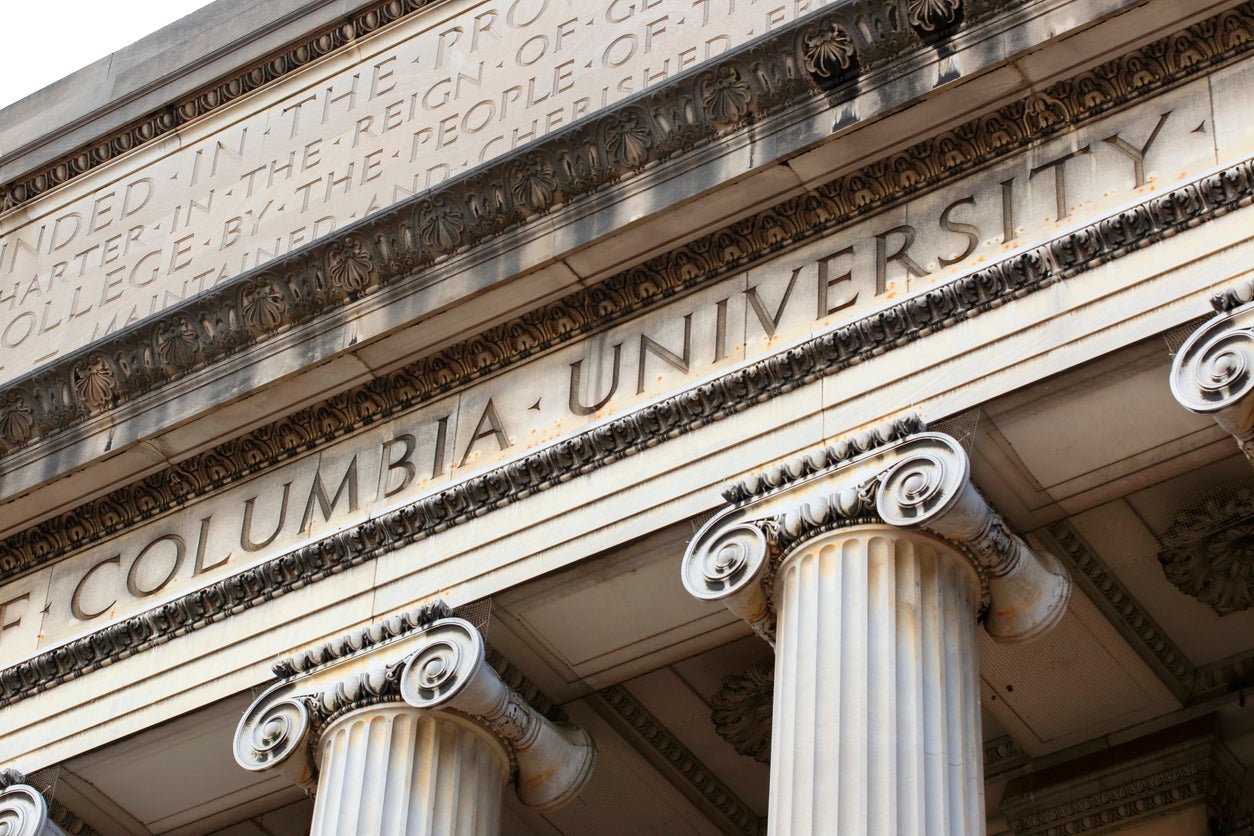Slave-owner's name taken off Columbia University dorm
Colleges and universities across the US are re-examining names and symbols on campus buildings

Your support helps us to tell the story
From reproductive rights to climate change to Big Tech, The Independent is on the ground when the story is developing. Whether it's investigating the financials of Elon Musk's pro-Trump PAC or producing our latest documentary, 'The A Word', which shines a light on the American women fighting for reproductive rights, we know how important it is to parse out the facts from the messaging.
At such a critical moment in US history, we need reporters on the ground. Your donation allows us to keep sending journalists to speak to both sides of the story.
The Independent is trusted by Americans across the entire political spectrum. And unlike many other quality news outlets, we choose not to lock Americans out of our reporting and analysis with paywalls. We believe quality journalism should be available to everyone, paid for by those who can afford it.
Your support makes all the difference.Columbia University has removed the name of the founder of its medical school, who also served as George Washington’s doctor, from a campus dormitory because he was a slave owner.
Samuel Bard, the founder of what is now Vagelos College of Physicians and Surgeons, was a pioneer in obstetrics and the treatment of diphtheria, but also owned several slaves and once advertised promising a reward for the return of one who had run away.
Bard Hall, which opened in 1931, is a dormitory for clinical students. In a letter to students and faculty, Columbia President Lee Bollinger said that the change “feels urgent”.
He added that it is “especially vivid at Columbia University Irving Medical Center, where the contradiction between the egalitarian health service norms they cherish and slavery's denial of full human standing is starkly blatant and offensive.”
In June Mr Bollinger asked interim provost Ira Katznelson to form a group to consider campus names and symbols associated with matters of race and racism.
While that process continues, the committee was unanimous in its recommendation regarding Bard Hall.
Mr Bollinger added that Columbia should not erase Samuel Bard’s contributions to the medical school, but must not recall this history "without also recognising the reason for our decision to rename Bard Hall".
A new name will be selected during the fall semester that represents the university’s values.
In July, Columbia’s Teachers College decide to remove the name of psychologist Edward Thorndike from a campus building because he was a proponent of eugenics and held racist, sexist and antisemitic views.
The 1790 census lists Bard as having three slaves, and the ad, from 1776, names the escaped slave as James, describing him as tall, thin and talkative. He was believed to have fled to the eastern end of Long Island.
Join our commenting forum
Join thought-provoking conversations, follow other Independent readers and see their replies
Comments